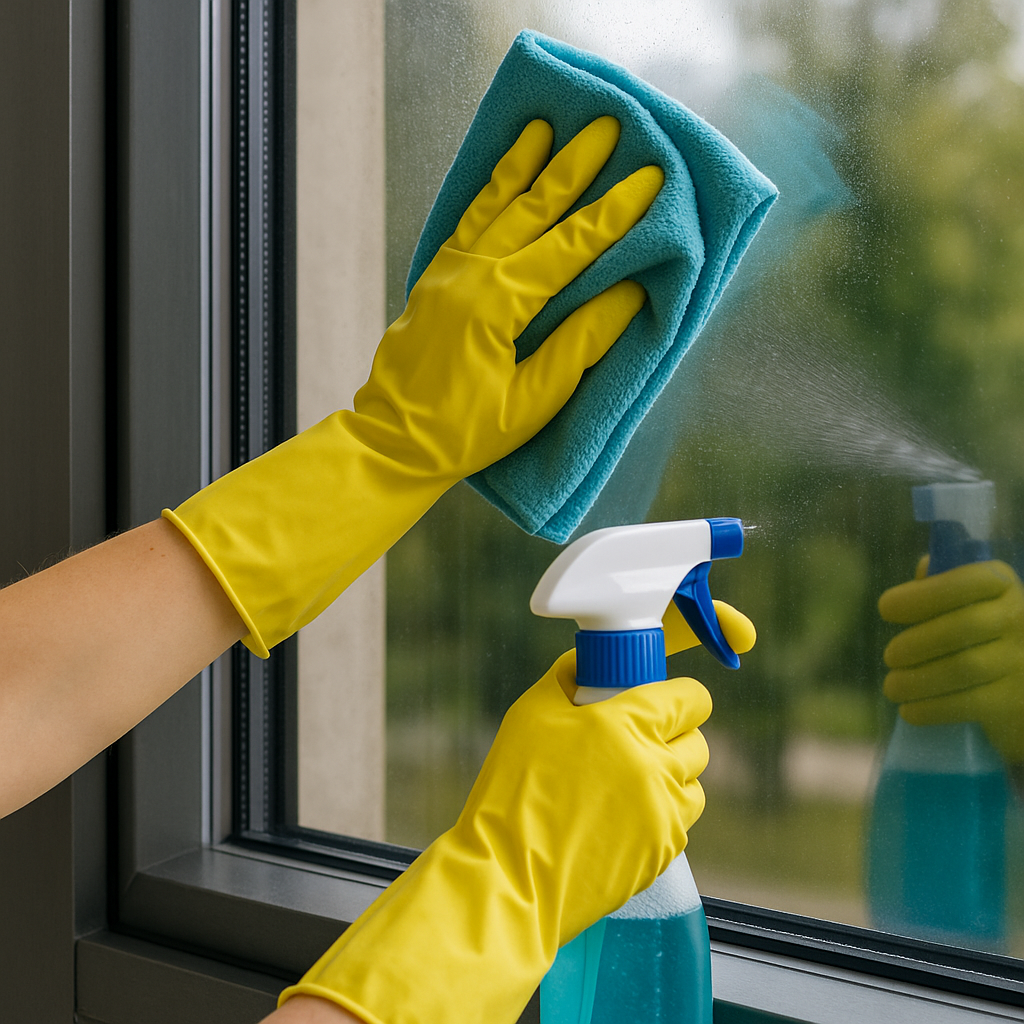Introduction: Clean Glass, Protected Seals
For buildings that rely on Insulating Glass Unit (IGU) for energy performance, sound control, and aesthetics, regular cleaning is essential. But improper cleaning methods or harsh chemicals can compromise the very feature that makes IGUs effective—the perimeter seal.
This guide provides expert-backed tips for cleaning IGUs safely, preserving seal integrity, and extending the lifespan of your high-performance glazing. Whether you manage residential properties or commercial façades, these techniques help maintain both visual clarity and thermal performance.
What Is an Insulating Glass Unit?
An Insulating Glass Unit is a multi-pane glazing system made of two or more glass panes sealed around the edge to form an insulating cavity. This cavity is typically filled with inert gas (like argon or krypton) and separated by a spacer. The entire perimeter is sealed using moisture-resistant compounds to prevent condensation and maintain insulation.
Seals are the most vulnerable part of an IGU—excessive moisture, chemical erosion, or mechanical damage can cause fogging, gas leakage, or full unit failure.
Learn more about sourcing high-integrity IGUs in Insulating Glass Unit Ordering Timeline and Sourcing.
Why Protecting IGU Seals Matters
1. Thermal Efficiency
Compromised seals allow gas to escape and moisture to enter, reducing the unit’s R-value and causing condensation between panes.
2. Acoustic Performance
Seal failure can also degrade acoustic dampening performance—especially in laminated IGUs used in urban or institutional settings.
3. Long-Term Warranty Coverage
Most IGU warranties exclude damage caused by improper cleaning or maintenance—particularly if abrasive tools or harsh chemicals were used.
4. Cost of Replacement
Replacing failed IGUs is costly and labor-intensive, especially in large commercial façades. Preventive care saves thousands over time.
For insights on supply chain management, read Insulating Glass Unit Commercial Supply Chain Insight.
Best Practices for IGU Cleaning Without Damaging Seals
1. Use Non-Abrasive Tools
- Soft microfiber cloths
- Sponge squeegees with rubber blades
- Soft-bristle brushes for textured areas
Avoid:
- Razor blades or scrapers (can breach Low-E coatings and scratch glass)
- Steel wool or scouring pads (can damage seal edges and coatings)
2. Select the Right Cleaning Solutions
Safe options:
- Diluted dish soap in warm water
- Vinegar + water solution (1:4 ratio)
- Commercial ammonia-free glass cleaners
Avoid:
- Solvents (acetone, toluene, methyl ethyl ketone)
- Acidic cleaners (used in masonry cleanup)
- Ammonia-based products (can degrade sealants)
3. Watch Water Pressure
- Use low-pressure water rinses
- Never power-wash directly near IGU edges or seams
4. Clean in the Right Conditions
- Clean early morning or late afternoon to avoid streaks
- Never clean hot glass in direct sun (can cause thermal shock)
- Avoid cleaning during freezing temperatures
Spot-Treating Stubborn IGU Stains Safely
For hard water spots or bird droppings:
- Use a diluted white vinegar soak (10–15 mins) with a soft cloth
- Rinse with clean water and dry thoroughly
For adhesive residue:
- Use citrus-based adhesive remover on glass only—not near seal edges
Never use metal blades to remove tape, labels, or caulking around IGUs.
Cleaning Schedule Recommendations
| Location | Frequency |
|---|---|
| Interior Residential IGUs | 2–3 times/year |
| Exterior Low-Rise IGUs | Quarterly |
| Commercial Façades | Bi-monthly or as needed |
| Coastal or Urban Zones | Monthly |
For bulk-maintained façades, coordinate cleaning with Insulating Glass Unit for Bulk Purchase & Logistics.
Special Considerations by IGU Application
Laminated IGUs
- Clean only with soft cloth and water-based detergents
- Protect the interlayer edge from chemical exposure
Triple-Pane or Low-E IGUs
- Avoid scratching interior-facing coatings
- Use only ammonia-free products to avoid surface degradation
Landscape-Integrated IGUs
- Watch for garden mist overspray, fertilizers, and soil buildup
- Design with protective overhangs to reduce environmental exposure
Explore outdoor performance tips in Bright View Landscape Core Benefits for Homeowners.
How to Identify Early Seal Failure
Look for these signs:
- Fogging or moisture between panes
- Rust or corrosion on spacers or frames
- Temperature fluctuations near glass surfaces
- Distorted reflections due to glass bowing or cavity vacuum
At the first sign of damage, photograph the unit and contact the supplier to determine warranty eligibility.
Preventive Measures to Extend IGU Life
- Ensure proper IGU installation using certified glaziers
- Apply UV-resistant sealant caps around perimeter if exposed
- Avoid hanging adhesives or decorations directly on glass
- Install awnings or shades for sun-exposed façades
Conclusion: Maintain Clarity and Efficiency with Proper IGU Care
Proper cleaning and care of an Insulating Glass Unit protect the seals, enhance building performance, and extend the service life of your glazing systems. With the right tools, non-abrasive methods, and a regular maintenance schedule, you can keep IGUs looking clear and performing efficiently—without risking costly damage.
Always pair safe cleaning with smart sourcing and installation planning to ensure your IGU investment lasts. For large-scale commercial or institutional settings, integrating IGU maintenance into building management is essential for operational and environmental success.

